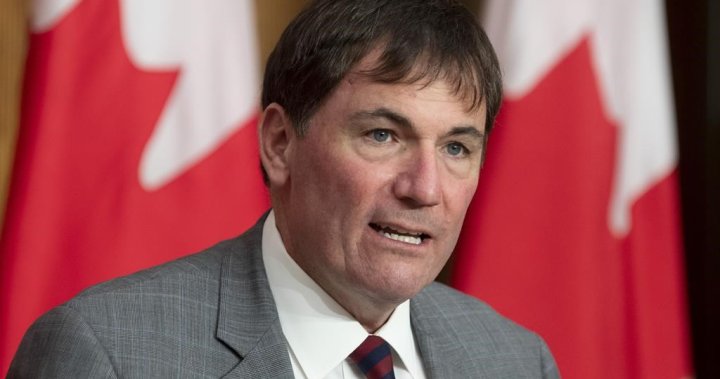Public vs. private care? Here’s where Ottawa wants extra health funds to go – National | Globalnews.ca
The federal government is making clear it does not want provinces and territories to use the billions of dollars in new federal health-care funding it proposed last week for private health facilities.
Yet Intergovernmental Affairs Minister Dominic LeBlanc told Mercedes Stephenson on The West Block Sunday that provinces exploring an expansion of private care to ease the burden on the public system can continue to do so — so long as they continue to abide by the Canada Health Act.
“The provinces can continue to do some of those things as long as they’re respecting the basic principles of the Canada Health Act, which deal with things like … access being based on medical need, not your ability to pay,” he said.
“But we’re going to be clear that the incremental federal money that we’re proposing has to go into strengthening … the public health care system, not the private health care system.”
Read more:
Trudeau says provinces need to ‘step up’ as health funding talks begin
Read next:
‘We kind of missed the landing’: Alberta premier on awkward handshake with prime minister
The federal government announced on Tuesday it is offering the provinces and territories a health funding deal worth $196.1 billion over 10 years, including $46.2 billion in new money.
The offer would add $17 billion to the Canada Health Transfer over the next decade — less than the $28 billion premiers were seeking to boost the federal share of health-care costs to 35 per cent. If accepted, the deal would raise the share from 22 to 24 per cent.
Another $25 billion would be given for targeted funding for family doctors, mental health, surgical backlogs and health data systems.
LeBlanc and Health Minister Jean-Yves Duclos will be travelling to each province and territory to kick-start talks with all provincial leaders on the funding offer, with the hopes of striking additional individual bilateral deals on how the money will be used.

LeBlanc would not say if this was a “take it or leave it” offer, but said it reflects the “current fiscal position” of the federal government and was still a “significant offer.” He added premiers should focus on negotiating those flexible agreements and “not spend a lot of time trying to increase the quantum” of money being offered.
But he reiterated the federal money is “not going to be going to private health care facilities.”
Ontario Premier Doug Ford’s Progressive Conservative government announced last month that it’s moving some procedures to publicly funded, private facilities to address a growing surgery wait-list, which worsened during the COVID-19 pandemic.
Patients will not have to pay for those procedures, Ford and Health Minister Sylvia Jones have said.
Provinces such as Alberta and Saskatchewan have already made similar moves.

Prime Minister Justin Trudeau has said his conversations with the premiers last week in presenting the offer made clear his government’s top priority is preserving the Canada Health Act. But he has also touted Ford’s move as an innovative solution to address growing wait times.
An attempt by the NDP to hold an emergency debate in the House of Commons on privatization in health care was denied last month.
Ottawa could ‘expedite’ immigration for doctors, LeBlanc says
Ultimately, LeBlanc noted most decisions related to health care remain under provincial jurisdiction, giving Ottawa few ways to influence delivery of services beyond providing funding and upholding the Canada Health Act.
But he said the federal government could also help in the recruitment of doctors and nurses from other countries to address the shortages across the country — so long as provinces lift their own barriers to getting those doctors accredited.
“That’s exactly the role that the federal government can play in partnership with the provinces,” he said.
“We can certainly work on expediting the immigration processing. … Obviously the provinces have jurisdiction in terms of medical colleges, medical societies, self-regulating bodies for different nursing professions.”
Read more:
‘We have to move quickly’: Health workers urge premiers to accept Ottawa’s health deal
Read next:
Liberal MP tops all others with $21.9K spending on ‘protocol gifts.’ Here’s what he spent it on
According to the Canadian Resident Matching Service, 2,844 Canadian medical graduates were matched to one of the 3,410 available residency programs in 2022. Only 439 international graduates were able to secure a spot.
Statistics Canada also notes that, although recent immigrants have helped boost the number of Canadians with bachelor’s degrees or higher to over 32 per cent of the working population, they are more likely to be overqualified for the jobs they have.
Immigrants and advocates have pointed to a long and difficult process in Canada to have their foreign credentials recognized — even for Canadians who have studied abroad for their degrees.
LeBlanc says he has had conversations with the premiers who have expressed a desire to remove those barriers.
“One of the areas of increased federal financial support will be designed to deal with exactly those kind of pressure points,” he said.
“The need is enormous.”
— with files from the Canadian Press
© 2023 Global News, a division of Corus Entertainment Inc.
For all the latest health News Click Here




